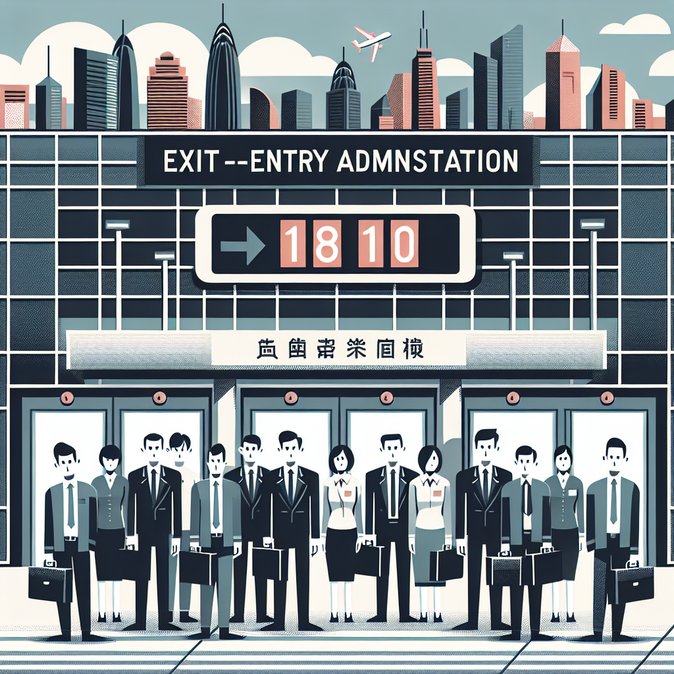
In a rare public compliance notice dated 24 November, the Exit-Entry Administration of the Shenzhen Public Security Bureau published the details (partially redacted) of eight foreign residents whose underlying work permits had been cancelled but who had not updated the purpose of stay on their Chinese residence permits within the statutory ten-day window.
The individuals—citizens of Serbia, the UK, the US and Spain—originally held residence permits linked to work authorisations that were revoked by the Shenzhen Foreign Experts Bureau between 4–7 November. Under Article 33 of China’s Exit-Entry Administration Law and Article 34 of the implementing regulations, foreigners must report any change in the reason for residence (for example, cessation of employment) within ten days; failure to do so can result in fines up to RMB 2,000, cancellation of the permit, or even administrative detention.
![Shenzhen police name eight foreigners for failing to update residence-permit changes]()
The notice gives the eight permit-holders until 4 December to report to the Exit-Entry Administration; otherwise their current visas will be declared void. While similar lists are occasionally posted at district level, city-wide bulletins are uncommon and signal a tightened enforcement environment in the Greater Bay Area as authorities push for greater immigration compliance ahead of the 2026 Asian Games in nearby Guangzhou.
For employers, the message is clear: when a foreign employee’s contract is terminated—voluntarily or otherwise—the work-permit cancellation letter must be forwarded immediately to immigration counsel so that either a new purpose-of-stay application (family, private affairs) or an exit plan can be filed. Companies that ignore off-boarding procedures risk administrative penalties, and affected individuals could face entry bans that would complicate any future assignments in China.
Mobility teams should audit current expatriate rosters and ensure that HR and legal departments share real-time data on terminations with visa desks. Shenzhen’s public naming-and-shaming suggests that similar enforcement sweeps may follow in other Tier-1 cities such as Shanghai and Beijing.
The individuals—citizens of Serbia, the UK, the US and Spain—originally held residence permits linked to work authorisations that were revoked by the Shenzhen Foreign Experts Bureau between 4–7 November. Under Article 33 of China’s Exit-Entry Administration Law and Article 34 of the implementing regulations, foreigners must report any change in the reason for residence (for example, cessation of employment) within ten days; failure to do so can result in fines up to RMB 2,000, cancellation of the permit, or even administrative detention.

The notice gives the eight permit-holders until 4 December to report to the Exit-Entry Administration; otherwise their current visas will be declared void. While similar lists are occasionally posted at district level, city-wide bulletins are uncommon and signal a tightened enforcement environment in the Greater Bay Area as authorities push for greater immigration compliance ahead of the 2026 Asian Games in nearby Guangzhou.
For employers, the message is clear: when a foreign employee’s contract is terminated—voluntarily or otherwise—the work-permit cancellation letter must be forwarded immediately to immigration counsel so that either a new purpose-of-stay application (family, private affairs) or an exit plan can be filed. Companies that ignore off-boarding procedures risk administrative penalties, and affected individuals could face entry bans that would complicate any future assignments in China.
Mobility teams should audit current expatriate rosters and ensure that HR and legal departments share real-time data on terminations with visa desks. Shenzhen’s public naming-and-shaming suggests that similar enforcement sweeps may follow in other Tier-1 cities such as Shanghai and Beijing.


